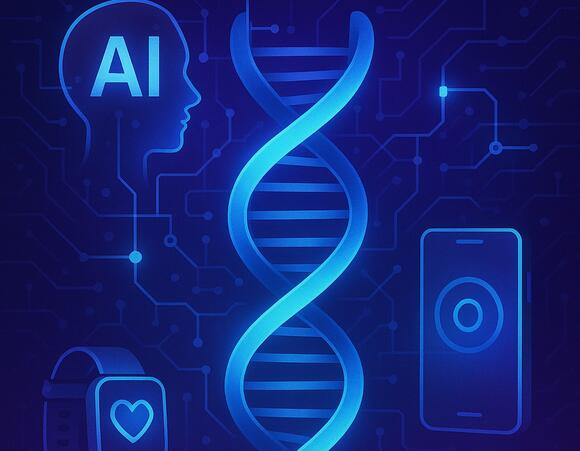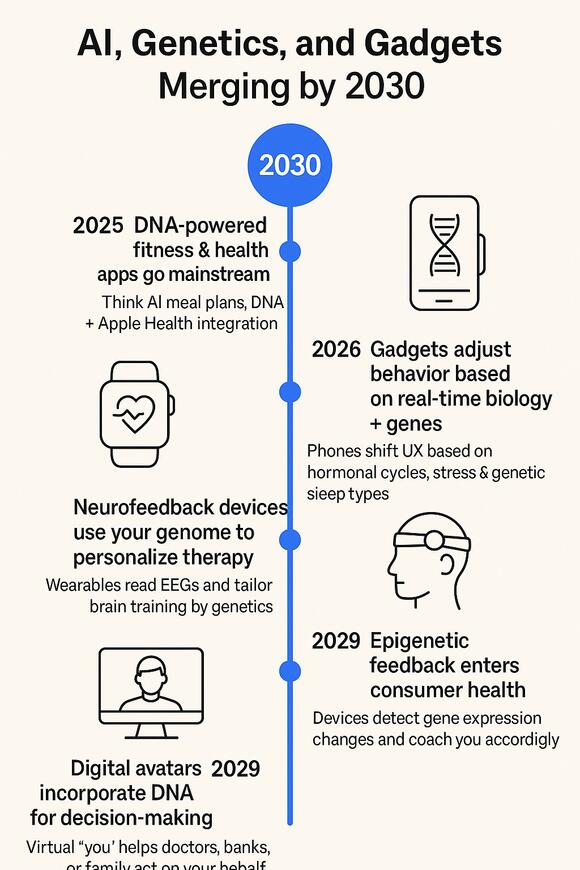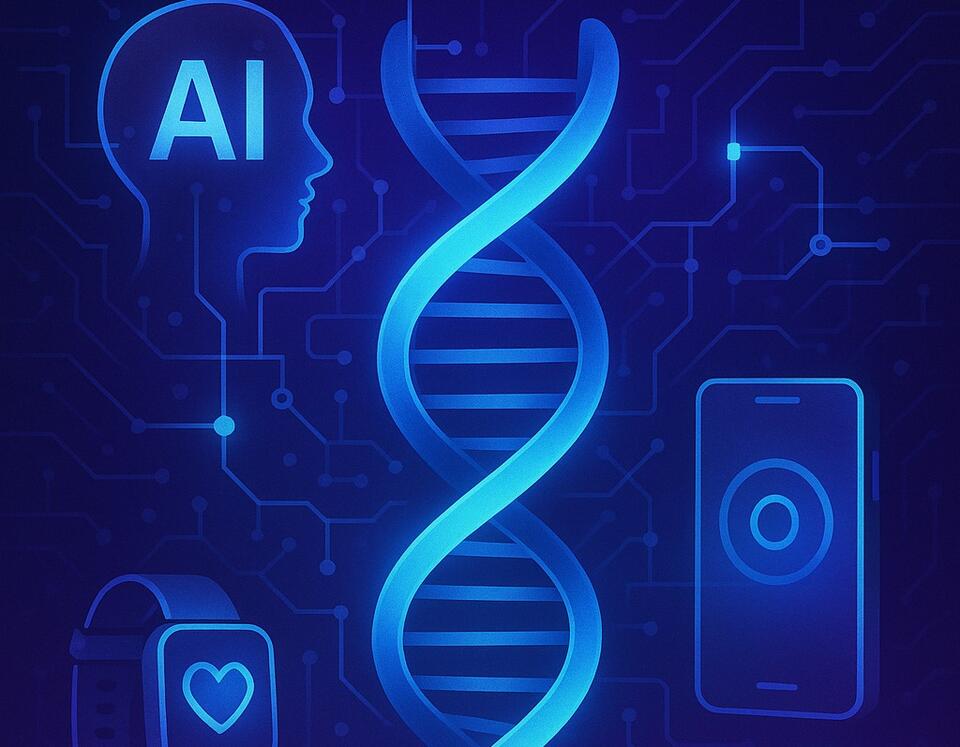
Over the next five years, we’re heading toward a full-blown fusion of artificial intelligence, consumer gadgets, and your own DNA. This isn’t some vague sci-fi prophecy. From predictive health coaching to digital avatars trained on your genes, this merge is already unfolding—and by 2030, your phone might know more about your body than your doctor.
Here’s a look at what’s coming, how it works, and when you can expect your biology to start syncing with your tech.
2025: DNA-Powered Fitness & Health Apps Go Mainstream
Companies like 23andMe and Ancestry helped people explore ancestry and genetic health risks, but now the real money is in personalization. Expect AI-powered health platforms to combine your raw DNA data with your Apple Health metrics, sleep scores, and food tracking to generate deeply customized plans.
Think:
- Meal recommendations based on your MTHFR variants
- Personalized workout intensity for your VO2 genotype
- Supplement suggestions filtered by your detox or inflammation genes
This is the beginning of health apps that don’t just track you—they know what your body needs.
2026: Gadgets That Adapt to Your Biology in Real Time
Wearables will get smarter, but not in the way you think. Rather than showing more charts, they’ll quietly shift how your phone or earbuds interact with you based on your genetic profile and current biometrics.
Imagine your phone adjusting:
- Notification frequency based on your stress hormones
- Light exposure from the screen aligned with your circadian rhythm genes
- Audio frequencies in your earbuds to match your dopamine receptor sensitivity
The user experience (UX) will get eerily personal—and potentially healthier.
Over the next five years, we’re heading toward a full-blown fusion of artificial intelligence, consumer gadgets, and your own DNA. This isn’t some vague sci-fi prophecy. From predictive health coaching to digital avatars trained on your genes, this merge is already unfolding—and by 2030, your phone might know more about your body than your doctor.
Here’s a look at what’s coming, how it works, and when you can expect your biology to start syncing with your tech.

Devices like Muse or Neurosity already let users monitor brainwaves, but their next evolution will be genetically aware. If you have genetic variants associated with anxiety, attention deficits, or memory decline, the AI inside these headsets will tailor brain-training protocols just for you.
For example:
- If you carry the COMT Val/Val genotype, your headset may recommend focus sessions with specific frequency bands.
- If your BDNF geneis linked to reduced neuroplasticity, it might prompt more recovery or mindfulness sessions.
Therapy isn’t going away—it’s going neural and genetic.
2029: Digital Avatars That Make Decisions Based on Your DNA
Digital clones are coming. These AI-powered avatars won’t just mimic your voice or facial expressions—they’ll understand how you’re wired, genetically.
By 2029, your digital twin might:
- Relay genetic risks to your doctor on your behalf
- Help your family make health decisions in an emergency
- Simulate your likely aging path, fertility window, or chronic illness trajectory
This opens a new era of genetic proxies—delegates trained not just on your data, but on your biology.
2029: Epigenetic Feedback Becomes a Wellness Loop
As CRISPR miniaturizes and sequencing becomes real-time, your smartwatch or smart ring could start detecting epigenetic changes—the way your environment alters gene expression.
Translation? Your gadget might nudge you to:
- Eat more antioxidants after pollution exposure
- Avoid late-night stress after gene methylation linked to burnout is detected
- Alter your behavior if your immune gene expression shifts
This is the arrival of living biology in real-time—your body talking back through tech.
What It All Means
The next five years will redefine what it means to be “personalized.” Your tech will no longer just serve you—it will become a mirror of you, down to your molecules. And while the benefits could be huge (earlier disease detection, better mental health, customized everything), the risks—around privacy, insurance, and control—will only grow.
By 2030, the question won’t be can we integrate AI, genetics, and gadgets?
It’ll be: Who owns the version of you that emerges from that integration?
